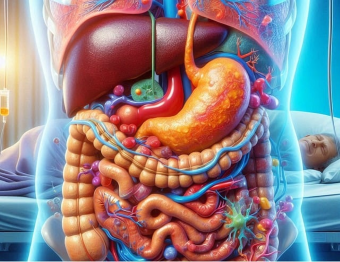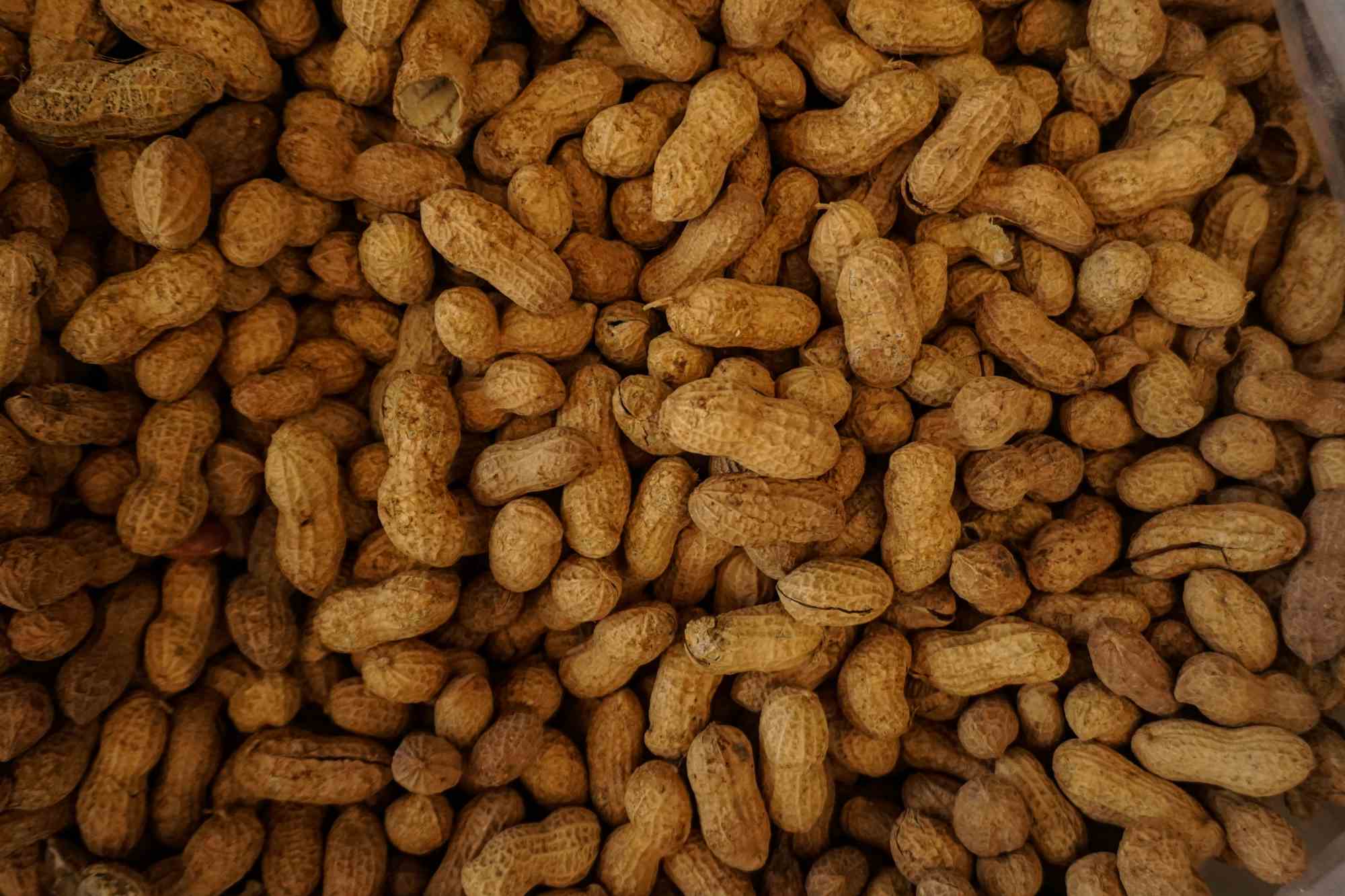
Introduction
Small Intestinal Bacterial Overgrowth (SIBO) is a condition characterized by an abnormal increase in the number of bacteria in the small intestine. While bacteria are essential for digestive health, an overgrowth can disrupt the balance of the gut microbiome and lead to a range of gastrointestinal issues. Understanding SIBO’s causes, symptoms, and treatment options is crucial for maintaining gut health and overall well-being.
The Functions of the Gut
The gut, primarily consisting of the small and large intestines, plays several vital roles in maintaining health:
Digestion and Absorption:
The gut breaks down food into nutrients, which are then absorbed into the bloodstream for use by the body.
Immune Function:
A significant portion of the immune system resides in the gut, helping to protect against pathogens and infections.
Microbiome Balance:
The gut hosts trillions of bacteria that aid in digestion, produce essential vitamins, and regulate the immune response.
Detoxification:
The gut helps eliminate waste products and toxins from the body.
Hormonal Regulation:
The gut interacts with the endocrine system, influencing hormone release and balance.
Causes of SIBO
SIBO can develop due to various factors, including:
Motility Disorders:
Conditions affecting the movement of the intestines, such as irritable bowel syndrome (IBS) or gastroparesis, can lead to stagnant food and bacterial overgrowth.
Structural Abnormalities:
Anatomical issues, like diverticula or strictures, can create pockets for bacteria to thrive.
Chronic Conditions:
Diseases such as diabetes, scleroderma, or Crohn’s disease may contribute to SIBO by impairing gut motility or altering the gut environment.
Antibiotic Use:
Frequent antibiotic use can disrupt the natural balance of gut bacteria, making the small intestine more susceptible to overgrowth.
Dietary Factors:
High sugar and processed food consumption can promote an environment conducive to bacterial overgrowth.
Consequences of Poor Gut Function
When the gut does not function properly, several health issues may arise:
Malabsorption:
Nutritional deficiencies and weight loss due to the inability to absorb essential nutrients.
Immune Dysfunction:
Increased susceptibility to infections and chronic inflammation.
Mood Disorders:
The gut-brain axis suggests that poor gut health can contribute to anxiety and depression.
Increased Intestinal Permeability:
Often referred to as “leaky gut,” which can allow toxins and undigested food particles into the bloodstream.
Symptoms of SIBO
Symptoms of SIBO can vary widely, but common manifestations include:
Bloating:
An uncomfortable swelling in the abdomen due to gas accumulation.
Diarrhea or Constipation:
Changes in bowel habits, including diarrhea, constipation, or alternating between the two.
Abdominal Pain:
Discomfort or cramping in the abdominal area.
Fatigue:
Chronic fatigue due to malabsorption of nutrients.
Nutritional Deficiencies:
SIBO can lead to deficiencies in vitamins and minerals due to impaired absorption, particularly in vitamins B12 and D, and minerals like iron.
Unintended Weight Loss:
This may occur due to malabsorption of calories and nutrients.

Preventive Strategies for SIBO
Preventing SIBO involves adopting a holistic approach that focuses on gut health:
Maintain Gut Motility:
Engage in regular physical activity to promote healthy gut movement. Activities like walking, jogging, and cycling can enhance gut function.
Avoid Excessive Antibiotics:
Use antibiotics judiciously and only when necessary to prevent disruption of the gut microbiome.
Manage Underlying Conditions:
Effectively treat chronic conditions that may contribute to SIBO, such as diabetes or gastrointestinal disorders.
Probiotics and Prebiotics:
Incorporate foods rich in probiotics (like yogurt and fermented vegetables) and prebiotics (like garlic and onions) to support a balanced gut microbiome.
Mindful Eating:
Eating slowly and chewing food thoroughly can help improve digestion and reduce the risk of SIBO.
Non-Medication Treatment Options
In addition to medication, various strategies can help manage SIBO:
Dietary Modifications:
Following a low-FODMAP diet can alleviate symptoms by reducing fermentable carbohydrates that fuel bacterial growth. Low-FODMAP foods include spinach, zucchini, carrots, and chicken.
Digestive Enzymes:
Taking digestive enzymes can assist in breaking down food and improving nutrient absorption.
Herbal Remedies:
Some herbal supplements, such as oregano oil, garlic extract, and berberine, may possess antimicrobial properties that can help manage SIBO.
Regular Meal Timing:
Eating meals at consistent times can help regulate gut motility and digestion.
Recommended Physical Activities
Regular physical activity is essential for gut health and can help alleviate symptoms of SIBO:
Walking:
Gentle walks can stimulate gut motility and improve digestion.
Yoga:
Certain yoga poses can promote relaxation and improve gut function. Poses like the Seated Forward Bend or the Cat-Cow can be particularly beneficial.
Strength Training:
Engaging in resistance exercises can enhance overall health and well-being while improving gut function.
Dietary Considerations
When managing SIBO, attention to dietary choices is critical:
Low-FODMAP Foods:
Focus on low-FODMAP options such as spinach, zucchini, carrots, and chicken to minimize symptoms.
High-Fiber Foods:
Gradually introduce high-fiber foods, which can promote gut health and regularity.
Hydration:
Drink plenty of water to support digestive health and prevent constipation.
Elimination of Trigger Foods:
Identify and avoid specific foods that may worsen symptoms, such as high-FODMAP foods, processed foods, and sugar.
Foods to Avoid
Certain foods can exacerbate SIBO symptoms and should be limited or avoided:
High-FODMAP Foods:
Foods like beans, lentils, onions, garlic, and wheat may trigger symptoms.
Processed Foods:
Avoid refined sugars and unhealthy fats that can contribute to inflammation.
Dairy Products:
Many individuals with SIBO may have lactose intolerance, leading to increased bloating and discomfort.
Recommended Vitamins and Mineral Supplements
To support gut health and overall well-being, consider the following supplements:
Probiotics:
Probiotic supplements can help restore a healthy balance of gut bacteria.
Vitamin B12:
Supplementing with vitamin B12 can help address deficiencies due to malabsorption.
Zinc:
Zinc plays a crucial role in immune function and digestive health, making it an important supplement for those with SIBO.
Vitamin D:
Supplementation may also be beneficial due to its role in immune health.

Conclusion
SIBO is a complex condition that can significantly impact digestive health and overall well-being. By understanding its causes, symptoms, and management strategies, individuals can take proactive steps to support gut health and prevent SIBO from occurring. A combination of dietary modifications, physical activity, and appropriate supplementation can lead to improved gut function and a healthier lifestyle. Prioritizing gut health is essential for achieving optimal health and well-being.
Subscribe to our newsletter, follow us on social media to let us know how you’re working towards a balanced life!
Oral Health: Causes, Prevention, and the Role of Nutrition
Oral health is often a neglected part of our...
Food Allergies: Causes, Symptoms, and Management
Food allergies and sensitivities are...
Unintentional Weight Loss
Unintentional weight loss can be distressing,...
The Negative Impacts of Plastic Usage on Health and the Environment
Plastic has revolutionized modern life,...
The Impact of Social Media on Body Image: How It Affects Women’s Health
Social media has transformed how we connect,...
Why Women Need Nutrition Counseling Beyond Weight Loss
Women face unique challenges when it comes to...
The Benefits of Journaling for Mental Health
Journaling has gained recognition as a powerful...
Minimalism and Health: The Effects of a Minimalist Lifestyle on Mental and Physical Well-being
Living in a world where consumerism and constant...
Physical activity: Cardio, Strength Training, Yoga, and Pilates
Engagement in regular physical activity is...










